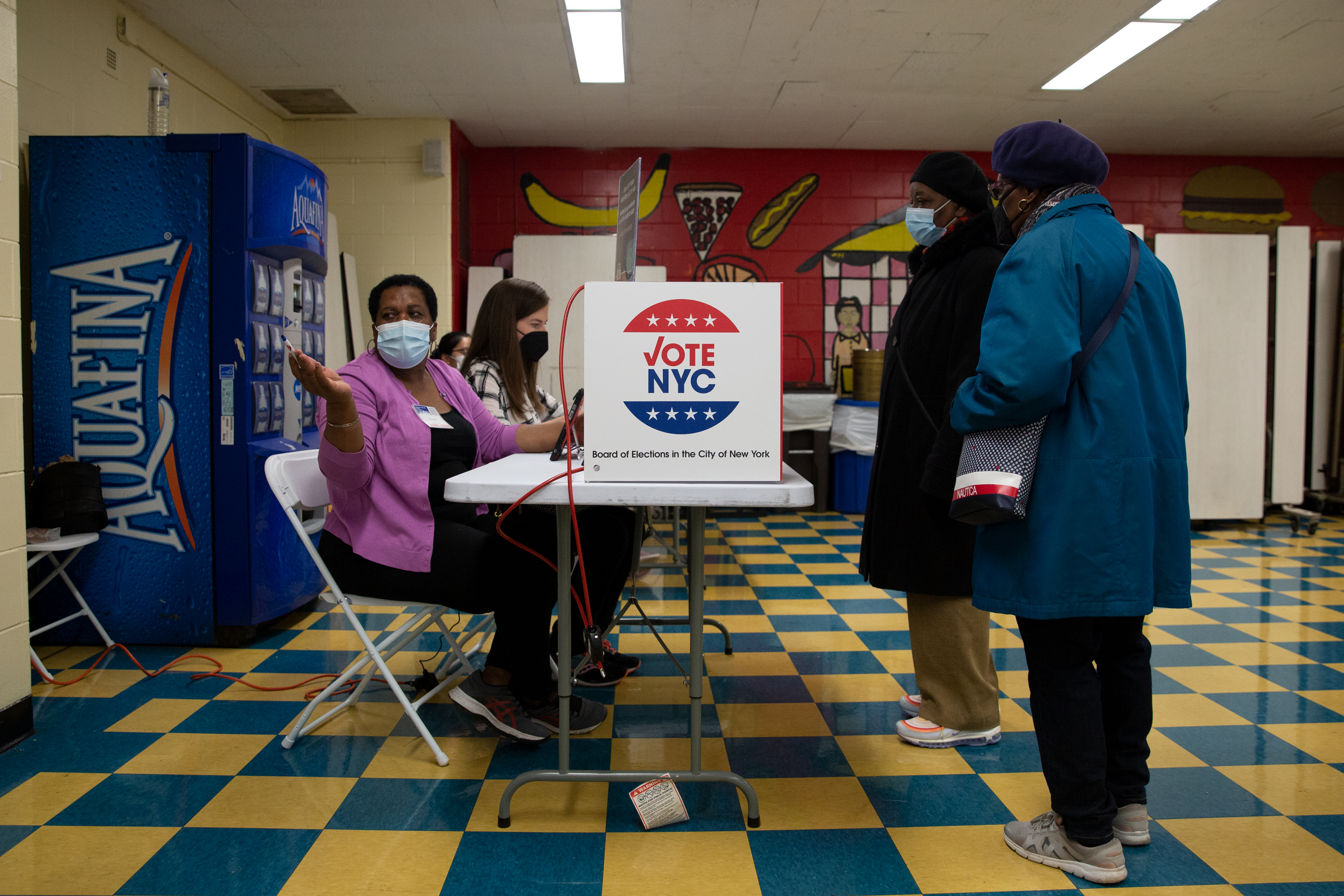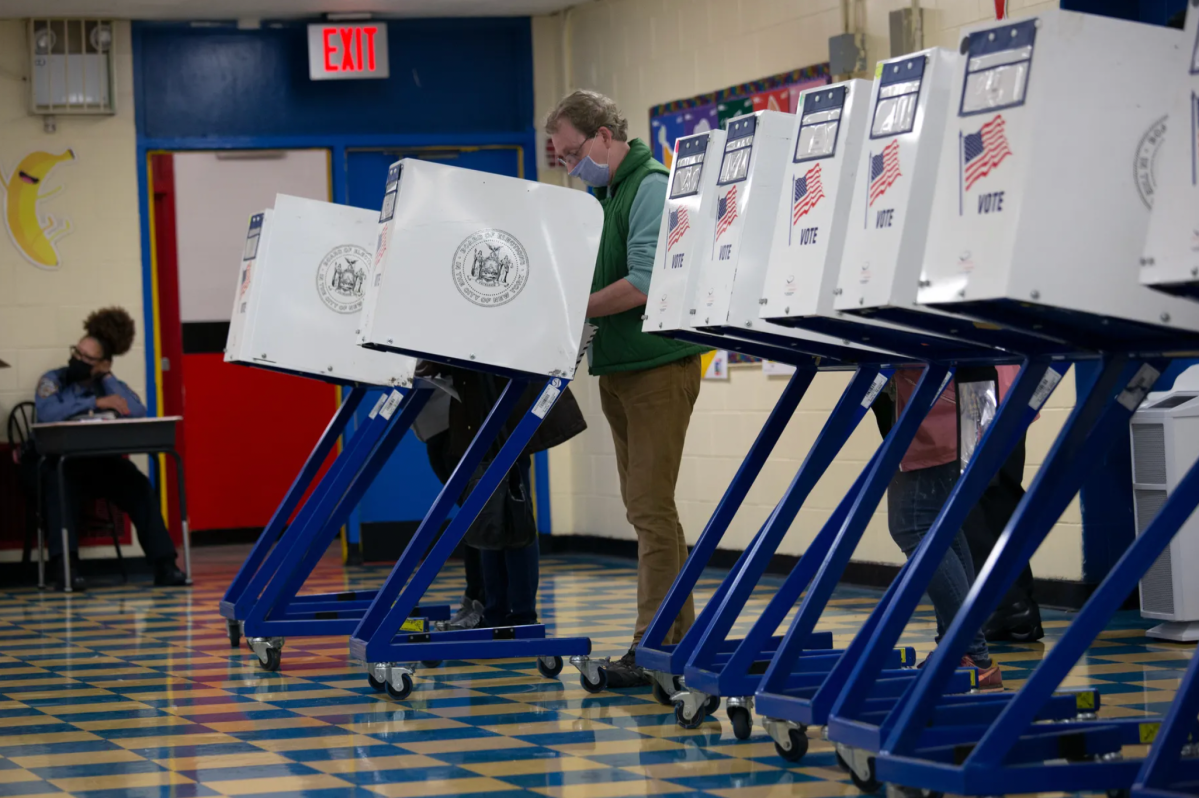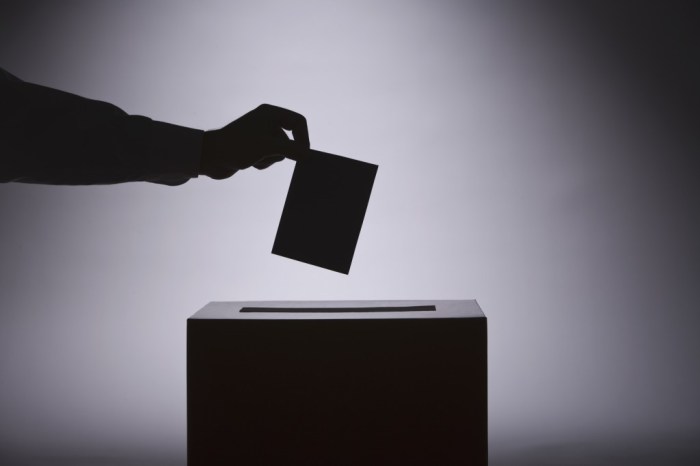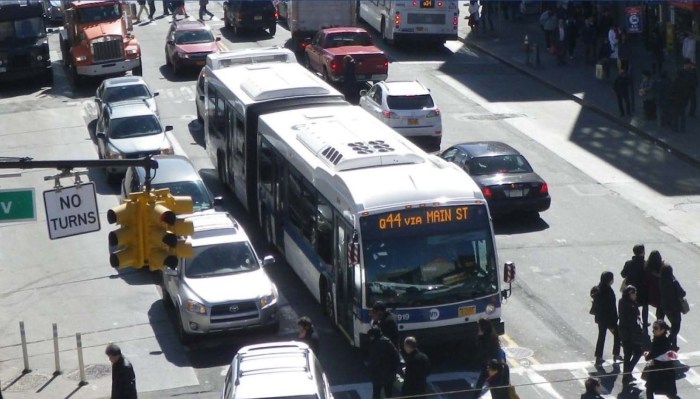This article was originally publishedby THE CITY. Sign up here to get the latest stories from THE CITY delivered to you each morning.
New Yorkers were on track for a new constitutional right to clean air and water, thanks to a ballot proposal that appeared headed for passage.
The measure, which had garnered more than 60% of the vote by early Wednesday morning, would add new language to the state Constitution guaranteeing “a healthful environment.”
The ballot question was one of five proposals up for New Yorkers statewide to vote on in the general election. Only two out of the five appeared likely to pass, according to returns from the state Board of Elections.
Voters seemed set to shoot down proposed changes to the redistricting process, and two measures that would have made it easier for people to register to vote and vote by absentee ballot. Meanwhile, a proposal to increase the claim limit in New York City Civil Court sailed to easy passage.
Results won’t be set in stone until after all absentee ballots are counted starting next week.
Praise for Green Move
The apparent victory of the environmental question, listed as Proposal 2 on the ballot, was hailed by advocates who see the measure as a way to force the state to protect natural resources and people’s health in future projects and policy.
“Having this right to clean air and clean water is only going to be positive to make sure that we are no longer overburdening our communities on the frontlines with these facilities that are pumping out pollution and harming public health,” said Julie Tighe, president of the New York League of Conservation Voters.
New York would follow Pennsylvania, Montana and a number of other states in adopting “green amendments” that grant environmental rights to citizens in various forms.
 Ben Fractenberg/THE CITY
Ben Fractenberg/THE CITYCritics of Proposal 2 said the new constitutional addition would invite a slew of lawsuits from New Yorkers, putting the onus for environmental regulation on courts and judges, instead of legislators.
Noting the potential failure of other proposed amendments along partisan lines, Peter Iwanowicz, executive director of Environmental Advocates for New York, said: “In these otherwise polarizing times, a healthy environment, breathing clear air and drinking clean water are values that bring people together.”
Keeping the Elections Landscape
Proposal 1 would have changed aspects of how New York uses the 2020 census data to redraw Congressional and state-level legislative districts — including capping the total number of state senators at 63 and moving up by two weeks the deadline for when redistricting plans must be submitted to the Legislature. But only about 38% of voters gave it the OK, all but ensuring its failure.
The approval of Proposals 3 and 4 would have paved the way for the legislature to craft rules allowing easier access to the polls.
Proposal 3 would have nixed a constitutional rule saying New Yorkers must register to vote at least 10 days before an election. Passage would have given state lawmakers the green light to approve same-day voter registration.
Proposal 4 sought to get rid of a constitutional rule that said voters need a valid reason to obtain an absentee ballot.
At least 50% of voters said no to each of the voting proposals according to the preliminary returns.
No-excuse absentee voting has effectively been in place throughout the pandemic thanks to a 2020 emergency order by then-Gov. Andrew Cuomo that allows New York voters to use the threat of catching COVID-19 as a reason to get a mail-in ballot.
Small Claims Court Gets Bigger
Proposal 5, which was winning with about 54% of the vote (and 14% for “blank”), would bring a key change for the city’s court system. The measure would boost the monetary limit that determines what type of case is heard by the New York City Civil Court.
The proposal would lift the limit from $25,000 to $50,000. Advocates in the Legislature put forth the measure to reduce the caseload in New York’s Supreme Court, which had previously heard all cases with claims above $25,000.
THE CITY is an independent, nonprofit news outlet dedicated to hard-hitting reporting that serves the people of New York.

































